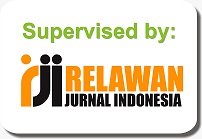PENGEMBANGAN METODE PEMBELAJARAN FIQH UNTUK SISWA MADRASAH IBTIDAIYAH (MI)
Abstract
selama ini fiqh diajarkan dengan metode yang relatif konvensional. Artinya, proses belajar mengajar dilakukan dengan cara penyampaian materi, dilanjutkan dengan menghafal dan praktik, sehingga bagi sebagian siswa terkesan monoton dan membosankan. Tidak jarang pula, karena alasan mengejar target kurikulum, para pendidik membebani siswa dengan materi yang begitu banyak tanpa memperdulikan apakah siswa telah benar-benar paham, tertarik dengan yang diajarkan atau tidak. Padahal suasana belajar yang monoton akan menciptakan suasana yang tidak nyaman bahkan bisa mengakibatkan stres. Kondisi yang tidak kondusif ini akan sangat menyulitkan untuk meningkatkan minat belajar fiqh dan dapat mencapai hasil belajar yang optimal. Sehingga dibutuhkan suatu upaya pengembangan metode pembelajaran fiqh yang sesuai, tepat dan menyenangkan.
Downloads
References
University Press.
Brett, A. G. 2001. “Teaching Communication Strategies to Beginners”. Language Learning
Journal, No. 24, 53-61.
Conn, C. E. 2007. Enhancing Instructional Effectiveness: Using Person-Centered Approach
to Classroom Communication. http:// www. Bussinesscommu-
nicationconference.org/ocs/viewpaper.php?id=1244 &print= 1 & cp =15. retrieved
on September 9, 2007.
Coughlin, M. 2006. Teaching Speaking and Conversation. http://www.usingenglish.
com./articles/teaching-speaking. conversation html.
Gibson, G. 2004. „Facilitating English conversation development in large classroom‟. The
Internet TESL Journal.
Inguva, M. 2007. Overcoming Barriers in Developing Conversation Skills – A Pedagogical
Perspectives.(on line) 72nd
Annual Convention, Washington, DC October 10-12,
2007.
Levinson, S. C. 1983. Pragmatics. New York: Cambridge University Press.
O‟Malley, J.M. and A.U. Chamot. 1990. Learning Strategies in Second Language
Acquisition. Cambridge: Cambridge University Press.
Richard, J. C. 1993. Let‟s Talk: Developing Speaking Skills in the ESL Classroom. http://
www.eric.ed.gov:80/Ericweb Portal/ retrieved on August 20, 2007.
Rubin, J. 1975. „What the “Good Language Learner” can Teach Us‟. TESOL Quarterly 9:1,
pp 41-51.
Sawir, E. 2003. Keeping Up with Native Speakers: The Many and Positive Roles of
Repetition in the Conversation of EFL Learners. http: //www. Asian-efl-
journal.com/December 04 ES. Php.
Tannen, D. 1989. Talking Voices: Repetition, dialogue, and imaginary in conversation
discourse. New York: Cambridge University Press.
Wehmeyer, M. L. 2006. Communication Skills Instruction. http:// www.rcept 7. org/More
Than A Job/supports/supports% 201/01% 20 comm % 20 skills% 20-% 2001-htm.
Retrieved on Sept 9, 2007.
Yule, G. 1998. Pragmatics. New York: Oxford University Press.









